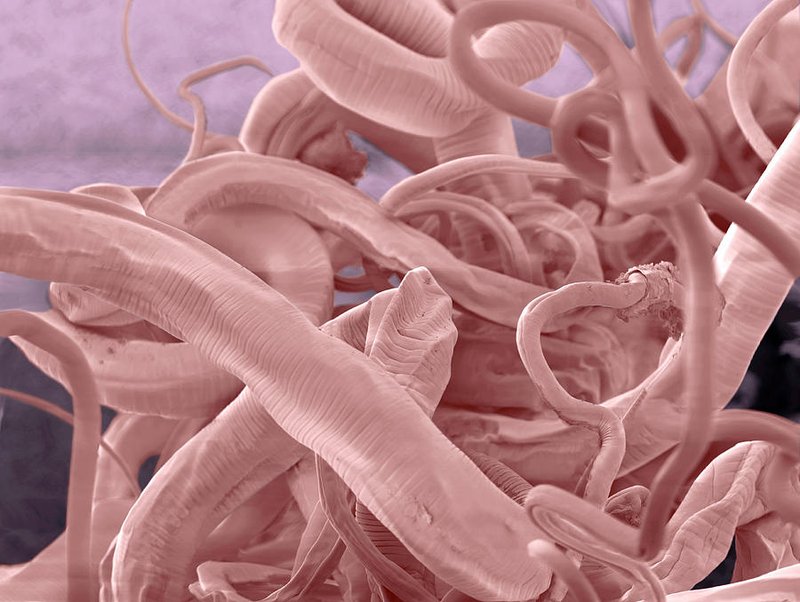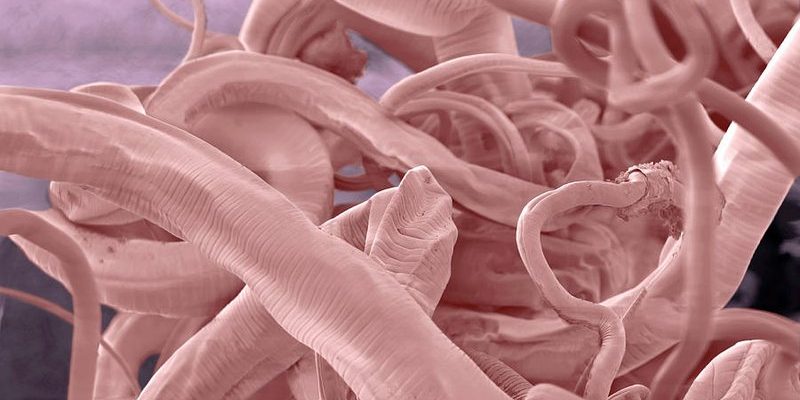
Whipworms are fascinating little beings that belong to the class of parasitic worms. Found in the intestines of various animals (including humans), they can have profound effects on their hosts and the broader ecosystem. Their presence—or absence—can significantly influence the health of their host populations and even the food web they sit within. So, let’s dive into the ecological importance of whipworms and see just why these little guys matter.
What Are Whipworms?
Whipworms, scientifically known as *Trichuris*, are a type of parasitic nematode. They get their name from their whip-like shape, which is quite unique. Imagine a thin, elongated spaghetti noodle with a slight curl at the end—that’s essentially what they look like. They mainly inhabit the intestines of their hosts, where they attach themselves to the intestinal wall and live off the nutrients consumed by the host.
These worms are typically around 3 to 5 centimeters long, and while they might seem harmless at first, they can cause significant health issues in their hosts if their populations grow too large. For instance, in humans, whipworms can lead to conditions like trichuriasis, which can cause abdominal pain, diarrhea, and even anemia. But before you consider them all bad, stick with me as we explore their ecological significance.
The Role of Whipworms in Ecosystems
Here’s the thing: whipworms can contribute to the balance of ecosystems in surprising ways. While they are parasites, they also impact their host populations. By controlling the population of certain host species, they ensure that no one group becomes too dominant in a given environment. This helps maintain biodiversity, which is vital for healthy ecosystems.
For example, think about what happens when a specific species becomes too abundant. It can lead to overgrazing or depletion of resources, affecting other species that share the same habitat. Whipworms can help keep those host populations in check, supporting a more balanced ecosystem. In this sense, they act like tiny regulators, ensuring that no one species overshoots its population limit.
Whipworms and Host Immunity
You might be wondering how whipworms affect the immune systems of their hosts. It turns out they play a fascinating role in modulating immune responses. When whipworms infect a host, they can influence the host’s immune system to become less reactive. It’s a bit like a natural immune system “reset” that can reduce the chances of the host developing allergies or autoimmune diseases.
For example, studies have shown that some people in regions where whipworms are common have lower rates of autoimmune disorders compared to those living in areas where whipworms are rare. The whipworm infection acts as a sort of training mechanism for the immune system, teaching it how to distinguish between harmful and harmless substances. So, even though they may seem like the bad guys, whipworms might be doing their hosts a favor in the long run!
Whipworms and Soil Health
You might not expect whipworms to have anything to do with soil health, but bear with me. These worms contribute to nutrient cycling within ecosystems. As whipworms live and reproduce in their host animals, they help break down organic material that is excreted. When hosts excrete waste containing whipworm eggs, those eggs can enrich the soil with nutrients once they’re returned to the ground.
This nutrient cycling is essential for plant growth. Healthier plants mean more robust food webs, supporting not just the hosts of whipworms, but also a myriad of other organisms, from insects to larger animals. So, while whipworms might primarily affect their hosts, their indirect influence on soil health plays a crucial role in supporting entire ecosystems.
Impacts of Whipworm Decline
Now, let’s chat about what happens if whipworm populations decline. If these little worms were to disappear from an ecosystem, it could lead to significant changes. First off, the populations of their host species might grow unchecked, leading to the overconsumption of resources and potentially threatening other species.
Additionally, without whipworms, we might see an increase in autoimmune diseases and allergies in humans. The absence of this natural immune modulator could mean that our bodies would struggle to differentiate between harmful and harmless agents, resulting in increased health issues. This cascading effect highlights how interconnected all organisms are within an ecosystem—every species has a role to play, no matter how small.
Conservation and Future Research
Honestly, whipworms don’t get enough credit for their contributions to ecological health. As we face increasing challenges like habitat loss and climate change, understanding and preserving even the smallest species is critical. Researchers are actively studying whipworms to better grasp their roles in ecosystems and how they might help mitigate health issues.
There’s a growing interest in therapeutics that could use whipworm properties to treat allergies and autoimmune diseases. By understanding how they interact with their hosts, we may find ways to leverage their benefits without the downside of full-blown infection.
The ecological importance of whipworm species is a testament to how interconnected all life forms are. From regulating host populations to influencing soil health and immune responses, these tiny worms have a hand in many aspects of ecological balance. Instead of viewing parasites solely as nuisances, it’s vital to recognize their potential benefits and contributions.
As we strive for a deeper understanding of our ecosystems, let’s not overlook the little guys. Whipworms, with their unassuming presence, remind us that every creature, regardless of size, plays a role in the intricate web of life. So next time you hear about whipworms, remember: they might be small, but their impact is mighty.

